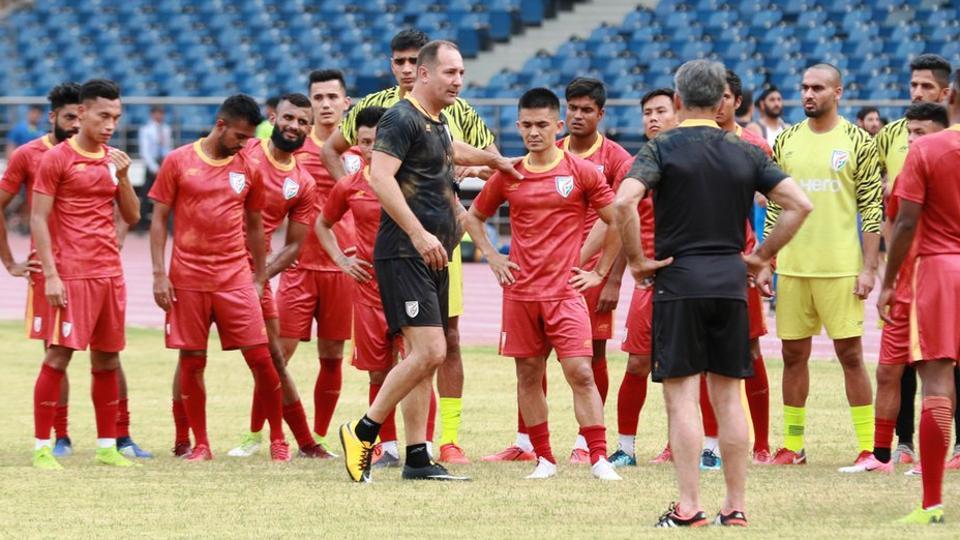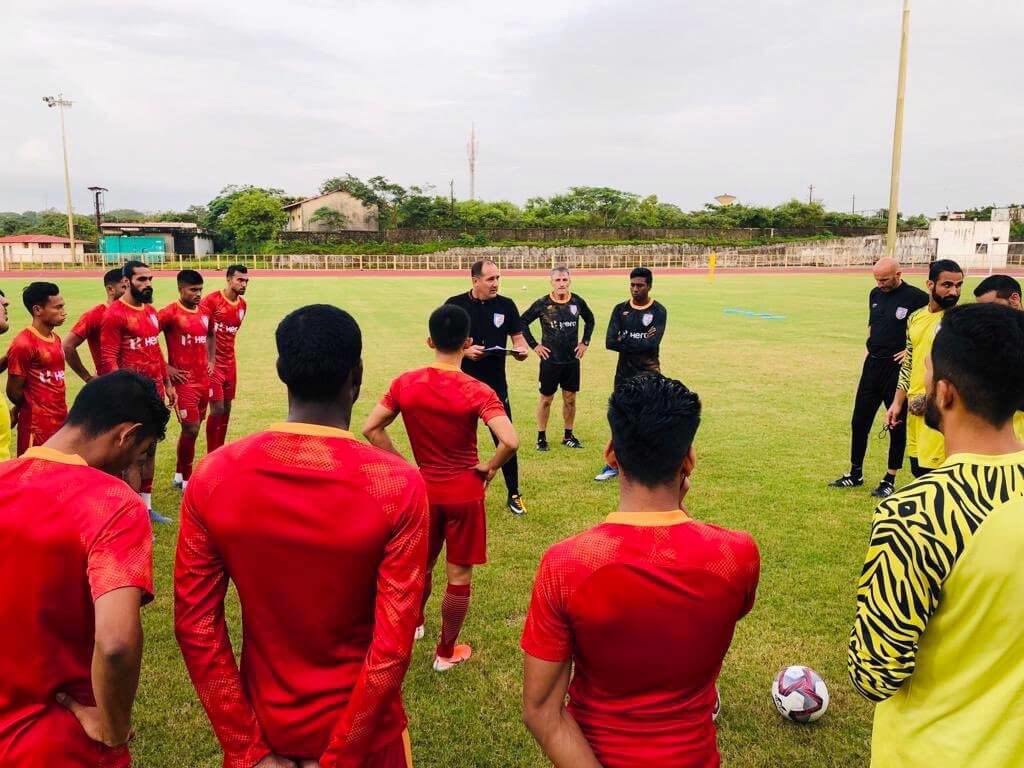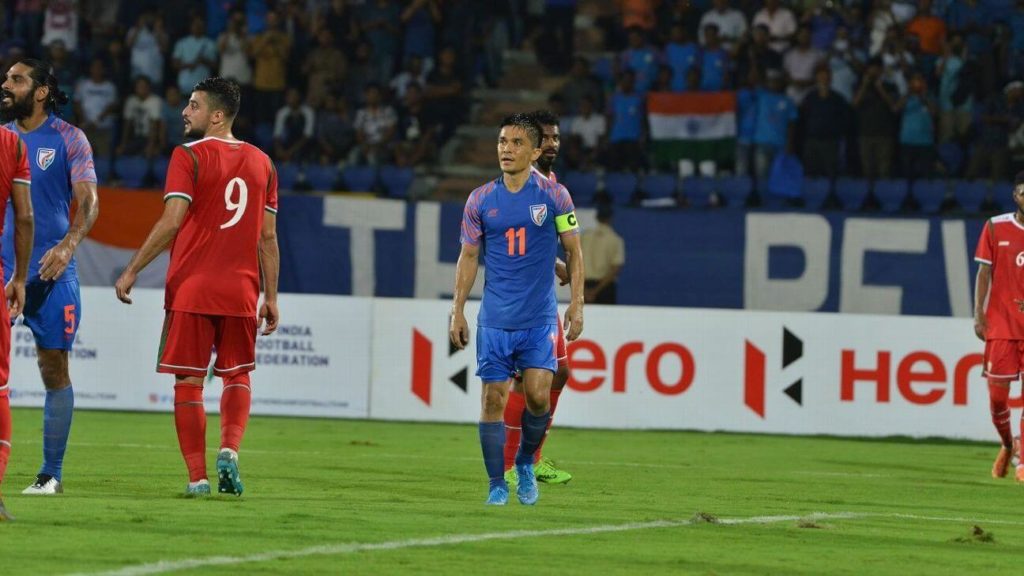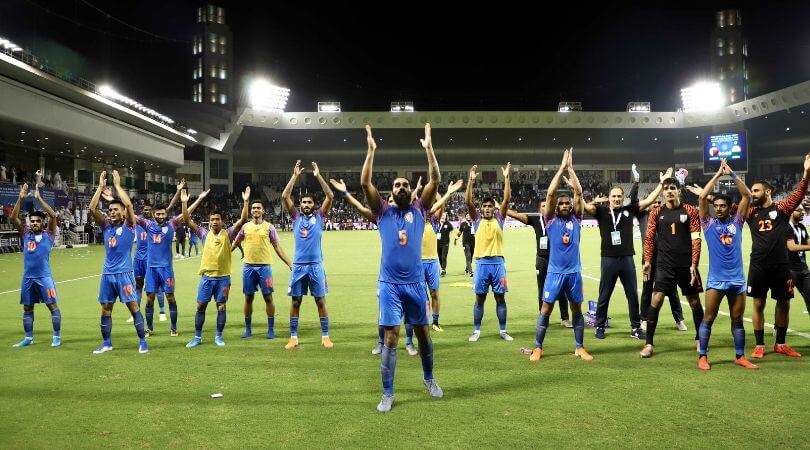2022 FIFA World Cup Qualifiers
Indian football under Igor Stimac: A new generation on the rise
Numbers could never do justice to the magnanimity India's draw against Qatar, but you would need context to get “why”.

About 1,500 people watched it from the stands, and about 1 lakh more were watching it live via the online stream. As the referee blew the final whistle, each and every India fan across the globe probably gave an exalted cry of joy. The Blue Tigers had just held the reigning Asian Champions Qatar to a 0-0 draw in Doha. It was probably the biggest result the national team has had over the last few years, notwithstanding the 4-1 thumping of Thailand at the Asian Cup this year and the Intercontinental Cup triumph in Mumbai last year.
On the pitch, the players were equally, if not more ecstatic than the fans. Hero of the game, Gurpreet Singh Sandhu broke down on the pitch in tears while the rest of the squad huddled and celebrated. Even coach Igor Stimac joined in the merry-making and the Viking Claps. It would seem like India had won the Asian Cup, but in reality, they had only gained one point from the two games in the FIFA 2022 World Cup qualifiers that they had played so far. However, numbers could never do justice to the magnanimity of that night in Doha, but you would need context to get “why”.
Examining Igor Stimac’s style
Croatian world-cupper Igor Stimac was appointed as the head coach of the Indian side in May. Failures at the Kings Cup and the Intercontinental Cup followed, with India being unable to make it to the finals on both the occasions. Stimac gave debuts to many youngsters and made 35 changes to his squad before the qualifiers began.

Having coached the national team he played for almost up to the 2014 World Cup, Stimac is well-versed with the know-how of international football. He defended the results saying his priority was the qualifiers, and he wanted to finalize his best set of players before them. Stimac’s focus on fitness and a build-from-the-back style of play, which was hitherto unforeseen in Indian football, has also started paying dividends for him.
Almost played to perfection: India’s narrow loss to Oman
On 5th September, India took on Oman in their first game of the second round of FIFA 2022 World Cup qualifiers. Played in Guwahati, the home side made the advantage count as they took the lead thanks to a clever free-kick from Brandon. Stimac’s decision to not press high and instead defend down the middle made it hard for Oman to get a breakthrough. The hosts went into the break leading 1-0.
However, in the second half, the cracks began to show. The lack of extensive game-time in the leagues took a toll on the Indian players. This is a scenario that had happened far too often of late, most tragically against Bahrain in the final group game of the Asian Cup 2019. A tired Pronay Haldar bought down a Bahrain player in the box right at the death, which meant India had no time to equalise and they went out of the tournament. In Guwahati, it was Rahul Bheke whose errors helped Al-Mandhar score a brace and turn the tide. It was heartbreaking to watch, but the keen fan would notice that Stimac’s ideologies had already started taking shape.

Throughout the game, Brandon, Ashique and Anirudh Thapa had put in colossal shifts in midfield and out wide. Quick, one-touch football was displayed on multiple occasions, with the likes of Sandesh Jhingan also starting several attacks right from the heart of the central defence. Barring a couple of mistakes, India had almost executed Stimac’s game-plan to perfection, but in the end, results account for everything. Following the loss, the players were heavily criticised for their poor fitness and the manager for his decision to not play any friendlies before the game.
The night of glory: India’s heroic draw against Qatar
In their next game against Qatar, India was up against it. Most had written them off, and feared punishment from the hands of the Qataris. They were right too, Qatar had scored 25 goals in their last nine games against Asian opponents and had failed to score only against Brazil, Argentina and Colombia in 2019. The odds were heavily against India, but it seemed like they had Lady Luck on their side.

Twenty-seven shots were taken, 11 saved: that was probably the most telling stat for India that night. They had defended in blocks throughout the night, sometimes with a five-man defence and at others time with a four-man backline with two defensive shields in front. Once again, Gurpreet was immense with his acrobatics, but Qatar had a couple of shots deflected off the crossbar as well. Commendable performances from Sahal Abdul Samad and Mandar Rao Desai highlighted the team’s grit as well. Having been outrun by Oman just five days back, India held on despite the colossal odds. What made the point even more memorable was the fact that it was all done despite the absence of captain Sunil Chhetri and talented starlet Ashique Kuruniyan, who had a fever and a niggle respectively.
Going forward, what can we expect from Stimac’s India?
More performances like these, hopefully.
It is extremely clear what Stimac’s vision for India is, he is trying to build a young side that is high of fitness and is tactically flexible. In an interview after the game, he declared that under him most of the player’s body fat had dropped from double digits to somewhere between”5 to 8%”. His “fat percentage” revolution, led by his fitness specialist Luca Radman has already shown signs of bringing fundamental changes in the national team setup.
Another important aspect of Stimac’s tactical nous is his thought-provoking tactical changes. In possession, the Blue Tigers usually deploy a 4-3-3 or a 4-2-3-1, but in defence, they revert to a 5-3-2. Stimac has also used the high press in a very measured manner, depending on the features of the opposition and not blindly integrating it in every game. His use of Mandar as a left-back away to Qatar also spoke volumes about his trust in his players and how he is trying to develop the next generation of the Indian squad.
India take on Bangladesh next on 15 October in Kolkata, and we can’t wait to see how Stimac sets up his side there!
#BackTheBlues
